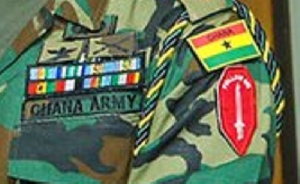The commencement of passenger operations by Royal Fly GH airline is expected to drive down air-fares, as passengers complain about rising ticket prices.
With two domestic airlines-- Starbow and Africa World Airlines (AWA) -- operating flights from Accra to Takoradi, Kumasi, Sunyani and Tamale, a one-way ticket between Accra and Kumasi for instance costs about GH¢300. Air-fares between Accra and Tamale now cost about GH¢450.
Royal Fly GH, successor to the defunct FLY 540, is expected to start operation by end of the year, after all its paper-work lodged with the Ghana Civil Aviation Authority (GCAA) is approved by the industry regulator.
Experts believe that the current ticket prices will fall once Royal Fly GH starts operation and competition increases.
The expectation of stakeholders is founded on the operating environment two years ago, when with four operators ticket prices fell to the barest minimum. A one-way ticket between Accra and Kumasi was under GH¢90 two years ago.
Jessica Haizel, Business Development Manager of Royal Fly GH told the B&FT that: “Comparing it to previous years, the fares are expensive. It is still relatively expensive because if we want people to do more of air travel than travelling by bus, then this is definitely not good. Nobody wants to spend GH¢300 flying in and GH¢300 flying out.”
Fly 540, which suspended domestic operation in May 2014, is expected to operate flights from Accra to Kumasi, Tamale and later Takoradi on an ATR72-600 aircraft.
“Fly 540 ceased operations because they wanted to undergo management restructuring and we have taken over from them. We believe in having a wholly Ghanaian owned airline.
“For starters we are looking at focusing on our domestic market, doing Accra-Kumasi, Accra-Tamale and later Takoradi. Possibly in the near-future, after we have operated for a while, we will consider the west coast and even the intercontinental routes.
“We are back in Ghana because we believe that the Ghanaian market is still available, and we also want to give travelers the opportunity to have other options besides the existing ones,” she said.
Airlines, however, believe that the current high fares can largely be attributed to the imposition of VAT on domestic air travel and depreciation of the cedi, given that their operational costs are priced in dollars.
This was at a time the local currency had depreciated in value by some 23 percent. Over 85 percent of airlines’ operations are dollar-based. Spare-parts, cost of aviation fuel, insurance and spare-parts are all priced in dollars.
Airfares from Accra to the four main domestic destinations -- Takoradi, Kumasi, Sunyani and Tamale -- went up by 17.5 percent on July 1, following the imposition of Value Added Tax (VAT) on all domestic air travels.
Ms. Haizel believes government should do more to support operators.
“Government can give our airlines some backing. Most of the people who give us some of these airlines are not willing to give any concessions, because they feel that in the event of anything they don’t have backing of any sort from the operator’s government. It could be backing in terms of policy, transport negotiations and more,” she said.
Business News of Thursday, 5 November 2015
Source: B&FT
Air-fares to fall as Royal Fly GH starts operations
Entertainment












